The NFL kneeling syndrome is no longer on the front pages. It has been displaced by the hurricanes and the Las Vegas massacre. But before it is forgotten, we need to examine it closely and identify the lessons it holds for us.
Sparked by Colin Kaepernick’s example a year earlier, the kneeling behavior spread to large numbers of players and some managers and owners. The public was divided over it. Some saw it as a simple exercise of free speech and said the players were not disrespecting the flag or the anthem but only police brutality. Others denounced it, calling it disrespectful and an insult to America. Still others admitted it was disrespectful but praised it for being so. Among the most insightful comments, in my view, were Judge Jeannine Pirro’s and Sean Hannity’s.
A notable dissenter among NFL players was Alejandro Villanueva of the Pittsburgh Steelers, who served three tours in Afghanistan as an Army Ranger. He stood at the edge of the tunnel as the rest of his team stayed inside. The Steeler coach later expressed disappointment in him, saying the team had decided to stay in the locker room and Villanueva should have respected the group’s decision.
That is strange reasoning. If the kneelers were judged to be acting on principle and those hiding in the locker room were as well, why wasn’t Villanueva? I’d guess much the same reason that Tim Tebow was thought to be imposing his religion on others when he took a knee in the end zone to thank God. In modern culture, only politically correct behavior escapes harsh criticism.
Many commentators missed the irony of the players’ behavior: The kneeling distracted from a ceremony honoring the very ideal they meant to champion—equal justice under the law.
Equal justice and other related values are what the flag and anthem are supposed to remind us of. It is true that not everyone who stands in respect for the ceremony practices the ideals it represents, but that fact in no way diminishes the ceremony’s meaning or efficacy. The outward signs of respect for ideals, over time, can lead to active support of the ideals. In contrast, disrespect does nothing but fuel resentment.
If kneeling seems noble to the players, it is probably because they do not have a genuine understanding of our country’s history. That is hardly surprising. Once a required subject in every school and college, history has become the poor stepchild of education. When taught at all, it is used as a platform for disparaging America’s past. Books and other classroom materials are selected and arranged to show the country and its citizens at their worst. The flaws of the Founding Fathers and other notable individuals are emphasized and their accomplishments are ignored or diminished.
Accordingly, the NFL players are no doubt familiar with the negative perspective of liberal professors yet unfamiliar with the details the professors omit—details of the wars Americans fought, the reasons they fought them, and their humane treatment of the vanquished; America’s notable avoidance of the colonization that other powerful nations pursued; its singular success, slow to be sure and at great cost, in abolishing slavery; and its record in providing greater opportunity for advancement to individuals than any other country in the history of the world.
The players need to read the works of scholars who examine that history in a balanced way rather than spew liberal propaganda. Here are a few works—by black scholars—with a sampling of the contents:
Thomas Sowell says in Race and Culture (1994) that one key fact about slavery has been widely ignored: “The West has been singled out as peculiarly culpable for a worldwide evil in which it participated, when in fact its only real uniqueness was in ultimately opposing and destroying this evil,” adding that slavery was present before the time of Columbus in the Americas and is “older than Islam, Buddhism, or Christianity.” He concludes that “to explain slavery as being a consequence of certain European ideas leading to bondage for Africans is to ignore the glaring fact that slavery extended in time and space far beyond Europeans and Africans, and far beyond those who shared particular European ideas.”
Sowell further challenges the notion that social problems for blacks are a “legacy of slavery,” noting that during slavery and after, “most black children were raised in two-parent homes,” that the marriage rates for blacks were higher than for whites in the early 20th century, and that black participation in the workforce was higher than white “in every census from 1890 to 1950.”
In White Guilt: How Blacks and Whites Together Destroyed the Promise of the Civil Rights Era (2006) Shelby Steele says it is “stunning” that since the 1960s, “amid constant racial debate, there has not been a single articulation by an American president of how blacks might so much as even share responsibility for their own advancement.” He terms it a “law of nature” that people must accept responsibility for their own uplifting before others can assist them, adding that “no group in human history has been lifted into excellence or competitiveness by another group.” He explains further that “White Guilt” for past discrimination caused whites to lose a proper appreciation of what was historically good about their society, notably principles such as “personal responsibility, hard work, individual initiative, delayed gratification, commitment to excellence, competition by merit, the honor in achievement, and so on.” And he blames liberalism for the debilitating assumption that whites are responsible for blacks rather than blacks being responsible for themselves.
John McWhorter, in Losing the Race (2000), cites three causes of the “troubles plaguing black America.” First, the tendency to “treat victimhood not as a problem to be solved but as an identity to be nurtured.” This tendency, he says, “encourages the black American from birth to fixate upon remnants of racism and resolutely downplay all signs of its demise,” and to think of racism “not as a scourge on the wane but as an eternal pathology.” The second cause is the encouragement of blacks to believe that, because they are victims they are exempted from “the rules other Americans are expected to follow.”
This second cause, McWhorter claims, leads to the third—“a strong tendency toward Anti-intellectualism at all levels of the black community.” The author calls this an “infection” and argues that “it is this, and not unequal distribution of educational resources, that is the root cause of the notorious lag in black students’ grades and test scores regardless of class or income level, and this thought pattern, like Victimology and Separatism, rears its head in every race-related issue in the United States.” Moreover, he argues that this anti-intellectualism aggravates the feelings of victimhood and exemption from the rules that exist in the black community. White politicians’ “well-intentioned social policies like open-ended welfare and permanent affirmative action” also aggravate those negative feelings.
After reading these three books and other fair-minded analyses, the kneelers would understand history of our country better and appreciate why most Americans have held the country, its flag and its anthem in high esteem, as the following comments illustrate:
The greatness of America lies not in being more enlightened than any other nation, but rather in her ability to repair her faults. Alexis de Tocqueville
The things that the flag stands for were created by the experiences of a great people. Everything that it stands for was written by their lives. The flag is the embodiment, not of sentiment, but of history. President Woodrow Wilson
As long as I live, I will never forget that day 21 years ago when I raised my hand and took the oath of citizenship. Do you know how proud I was? I was so proud that I walked around with an American flag around my shoulders all day long. Arnold Schwarzenegger
Of course we still have racial tensions in this country. But the United States of America has made enormous progress in race relations, and it is still the best place on Earth to be a minority. [Also] The essence of America – that which really unites us – is not ethnicity, or nationality or religion—it is an idea—and what an idea it is: That you can come from humble circumstances and do great things. Condoleezza Rice
The NFL kneelers surely intended to take a stand on principle and that is laudable. However, they chose the wrong action, the wrong time and place, and the wrong issue. (I am not excusing police brutality but suggesting that there are much deeper, more important issues to be addressed.)
So what should the kneelers do instead? Focus on the more serious issues facing black Americans and do so in more appropriate places and ways. Here is one approach:
Visit black youth groups and black community organizations and discuss the insights offered by Thomas Sowell, Shelby Steele, and John McWhorter. For example:
Explain that black Americans should, of course, not only be sad that their country once practiced slavery but, more importantly, proud that it led the way in “opposing and destroying” that evil.
Point out that because of guilt over slavery, many white politicians have made the mistake of believing that they are responsible for black advancement, and that has resulted in paternalistic programs that prevent black independence. Advocate for reclaiming that independence by embracing the positive principles of “personal responsibility, hard work, individual initiative, delayed gratification, commitment to excellence, competition by merit, and seeing honor in achievement.”
Emphasize that though racism has always been a scourge, it has greatly diminished and should never be used to foster a sense of victimhood or as an excuse to exempt oneself from “the rules other Americans are expected to follow.”
Warn individuals and groups of the “strong tendency toward Anti-intellectualism at all levels of the black community” and of the reality that this tendency rather than prejudice is responsible for “the notorious lag in black students’ grades and test scores.” Urge valuing and striving for academic achievement.
Remind audiences that the breakdown of the black family, the rise in out of wedlock childbearing, and the decline of black employment are not the legacy of slavery but of the breakdown of traditional values starting in the mid-twentieth century. Before that time, those problems did not exist in the black community and they need not exist in the future if traditional values are once again honored.
Such an approach would take more effort and commitment than the truculent taking of a knee at a football game, but it would be much more positive and meaningful.
Copyright © 2017 by Vincent Ryan Ruggiero. All rights reserved

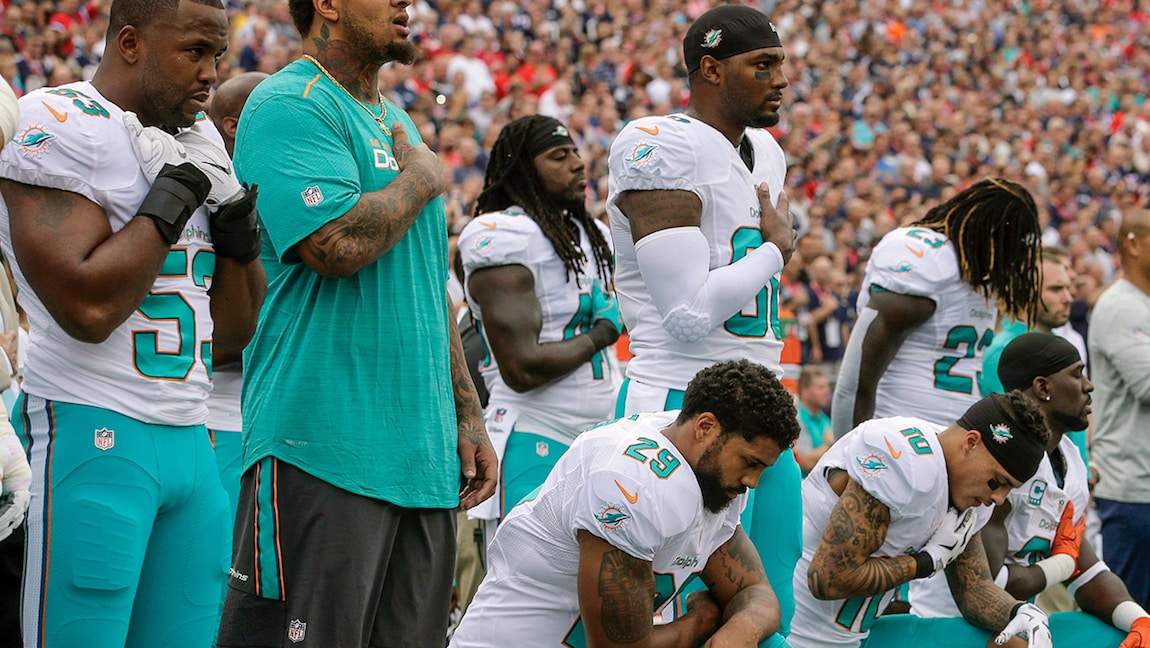

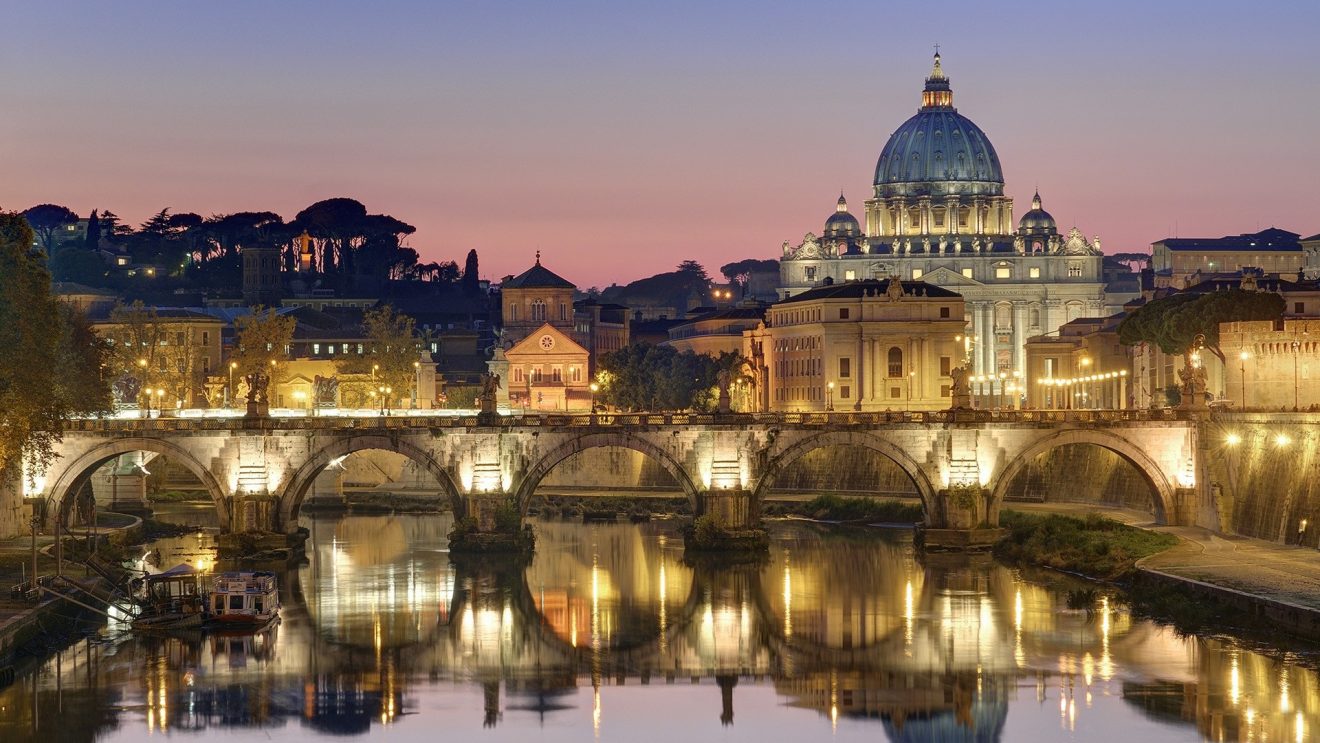
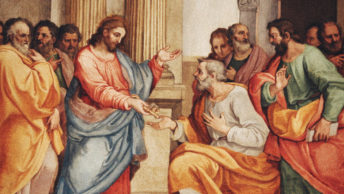
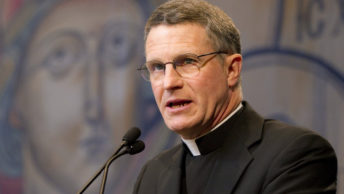
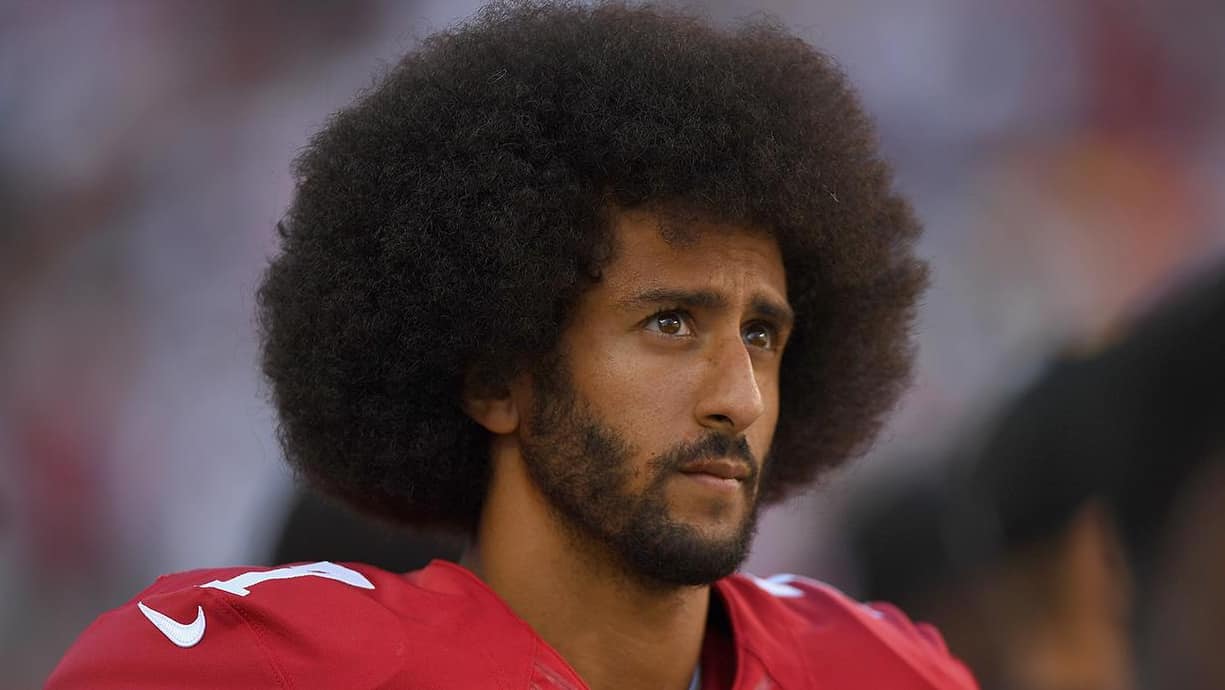


This kneeling charade like all liberal rants and charades are meant as a distraction to hide truth. The truth is the black culture is a disaster and the Democrat Party enables the destruction of the black community. The black community has nearly 80% of births out of wedlock, single motherhood is the largest contributor to poverty, the largest employer is drug dealers, the local cops are the gangs and Planned Parthood has the majority of their extermination camps in these communities. Like all things liberal they can’t admit the truth and so they disparage all who speak the truth including this great country truly blessed by God